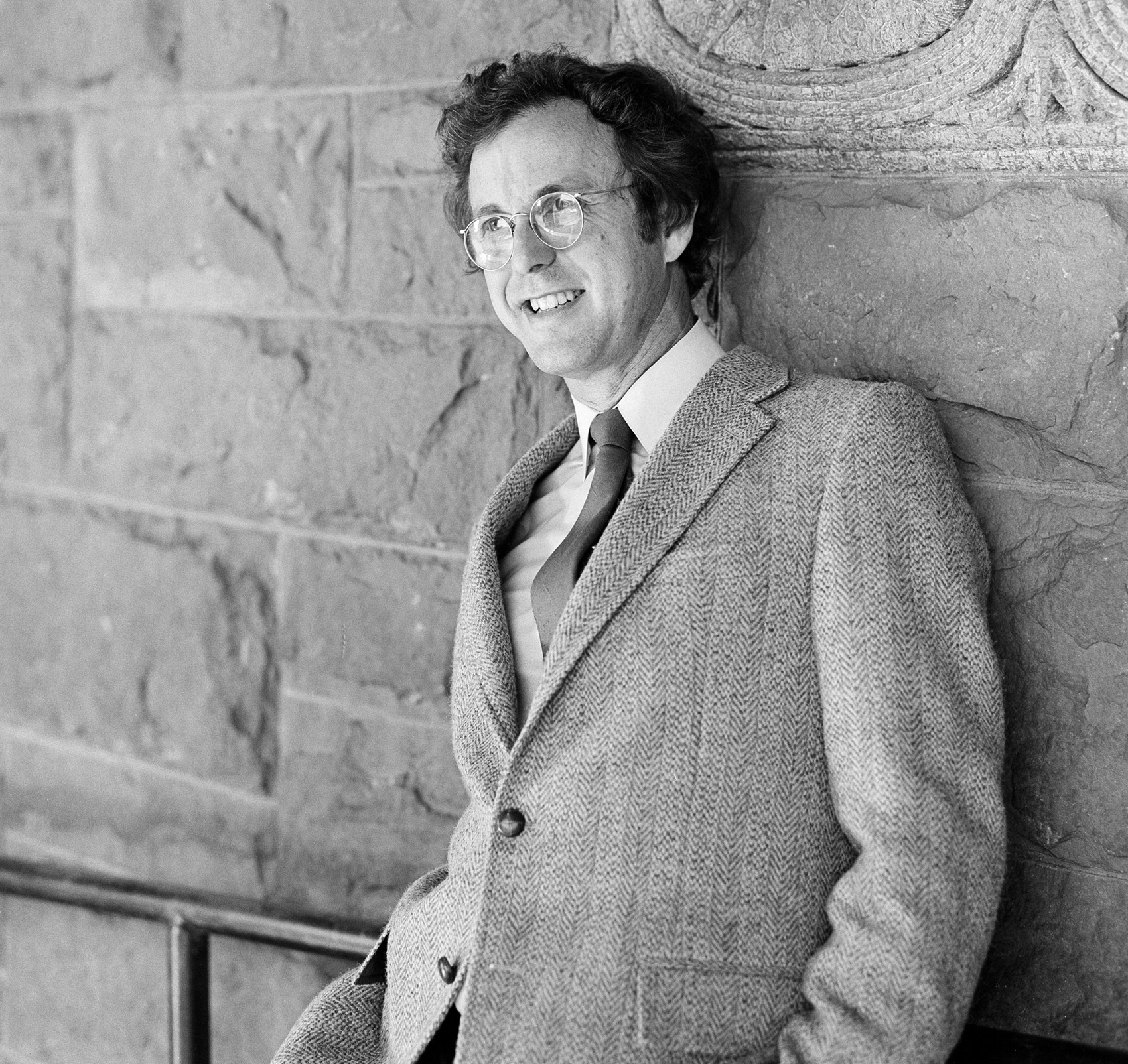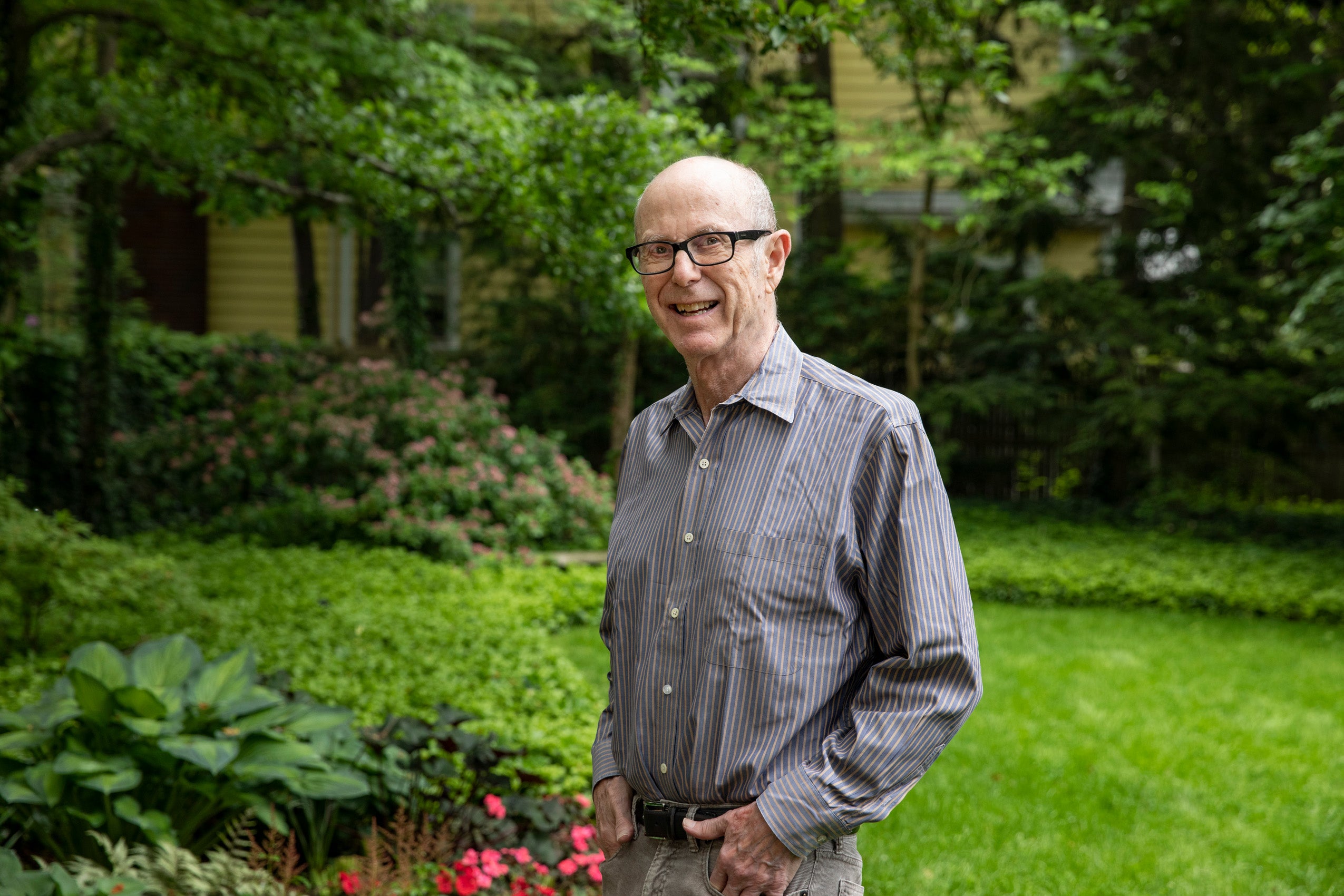I can still see the scene vividly. He is pantomiming what it would mean to act with “deliberate indifference” — purposely rushing forward only to slow down abruptly like he did not have a care in the world. It was just one more attempt to convey to his students the contradictions, the tensions, the at-times-hopeless effort to give content to competing interests in one legal test by Jerry Frug [’63], master teacher, legal theorist, city lover, mentor (a word he does not like one bit) and, to me, great friend (a word he likes a lot more), basically ever since I took that class — his signature, Local Government Law — in 1993. And now, nearly three decades later, and more than four decades after he began teaching at Harvard Law School, he is stepping down. It is a great loss for the school and for the field of local government law, which he revived and transformed. It is also an occasion to reflect on his contributions.
If there were a law school version of “Name that Tune,” called “Name That Law Professor,” it would not take more than saying “decentralization” in Jerry’s distinctive way — the word rising to a crescendo in the middle, then falling sharply at the end — for his former students to know it was “Frug.”
But it is not just how he says that word. It is the word itself — one he has made the focus of his teaching and writing and, in turn, the focus of the teaching and writing of so many after they encountered what he has had to say about it.
For Jerry, all the assumptions about where power should reside, what power is, who should wield it, whether it should be wielded and for whom, are wrapped up in that word and attitudes about it. He was convinced when he started teaching that much more attention needed to be given to it — and to all the questions that it provoked — than were being given in law schools, especially national law schools like HLS.

It was not that there was no tradition of thinking about decentralization at such places. There certainly was at Harvard, thanks to Frank Michelman in particular. But, Jerry, who served as a top administrator in New York City before teaching, was convinced there was so much more to say. When he came to Cambridge as a professor, cities were still in the midst of decades of decline, suburbs were booming, and the civil rights movement had understandably given localism a bad name. But he was convinced that had to change. Only in close proximity could people of different backgrounds learn from each other and grow together in ways that would make life meaningful.
The result was a dizzying array of writings on the topic, from his seminal article — “The City as a Legal Concept” — to his award-winning book, “City Making: Building Communities without Building Walls.” That last writing ensured that Jerry achieved something only the most creative performers ever do — true crossover appeal, making his work as influential in design, planning, and urban theory circles as within legal academia. And not only in the United States but all over the world.
Why?
It is in part because he comes at the topic so distinctively, mixing history, close doctrinal analysis, and theory (his is the first — and probably the last — casebook to start each section with a quotation from Italo Calvino) in a thrilling mix that keeps you questioning what is real — the observed facts on the ground or the ideas that we generated to describe them?
Few have looked at cities with as much care or creativity as Jerry Frug has.
It is also because he writes about cities and the way that judges and legal thinkers talk about them with verve and a sense of irony that is anything but dogmatic, while keeping his eye at all times on what cities mean to us, who they are serving, who they are failing, and how they could be made to be more just and more fun — Citymaking!
I think it is also because he so evidently loves the topic and is so obviously enthused to find anyone who might come to love it as much as he does.
In other words, I think it is because Jerry is an original, with distinctive ideas that are hard to categorize — one of his best articles was called “Decentering Decentralization” — and, in consequence, hard to forget.
I ended up joining Jerry at HLS and teaching Local Government Law in the semesters he didn’t. We talked every day — usually more than once. I never made an important decision without his advice. He is a friend for life.
He also was — and still is — a close collaborator. I never wrote a word he didn’t see first. We co-taught seminars; I joined his casebook (Calvino is still there). We co-wrote two books. We also worked on two long projects to make home rule work better for Boston and Massachusetts.
That class 30 years ago set the trajectory for my own career. I am one of many former students of his who could say that.
But, Jerry’s work does not focus only on cities. He wrote a defining piece on bureaucracy and another powerful one about argument and character. He also taught Contracts to generations of students, who got the full benefit of his humor and his insight. And along the way, he has assembled a world-class collection of contemporary photography that fills every inch of wall space in his house.
It won’t surprise you to know that almost all of the photographs are of cities. And it won’t surprise you to know either that no two of them depict the city the same way — a visual testament to Jerry’s belief in how much there is to see in them if you are willing to look. Few have looked at them with as much care or creativity as he has. Few who’ve seen how he has seen them have looked at them the same way again.
David Barron ’94 is a judge on the U.S. Court of Appeals for the 1st Circuit and the Louis D. Brandeis Visiting Professor of Law at HLS.
